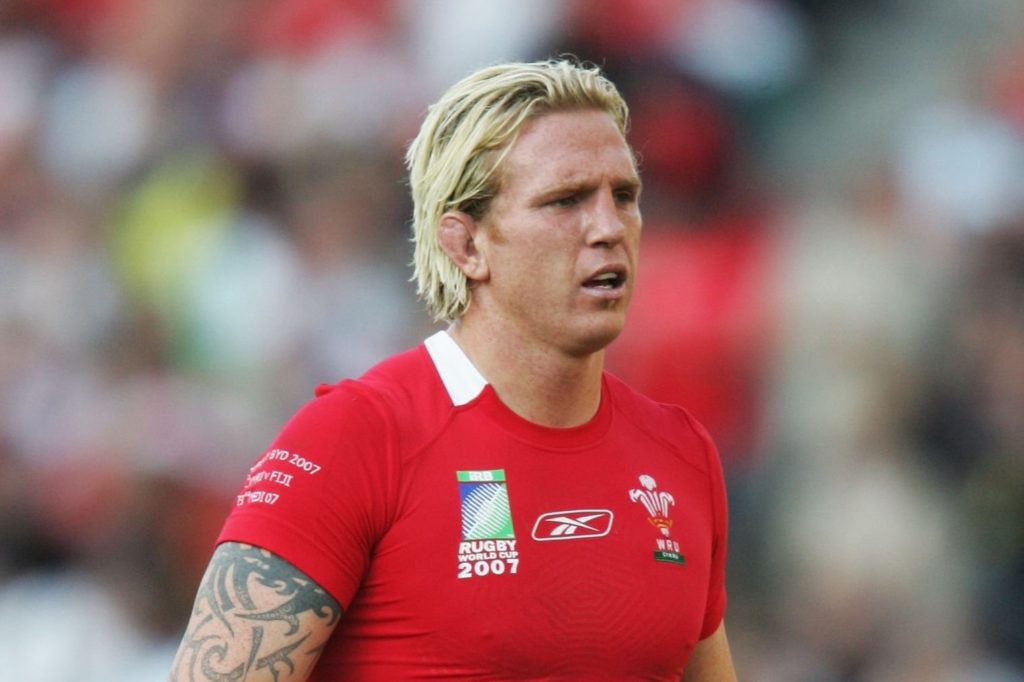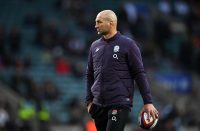By Matthew Luddington
Former Wales international Alex Popham believes players and coaches must be educated on the risks of brain injuries in rugby, and that contact in training must be dramatically reduced.
Popham received a diagnosis of probable Chronic Traumatic Encephalopathy (CTE) and early onset dementia in April 2020 due to head injuries sustained during his professional career.
Medical experts estimated that Popham experienced more than 100,000 sub-concussions throughout his 14-year career.
Following his diagnosis, Popham, along with his wife Melanie, founded the charity “Head for Change.” This organization is dedicated to promoting positive changes in brain health within sport. It provides support to former players dealing with neurodegenerative diseases.
Popham shared that the inspiration for creating Head for Change from his own experience.
He said: “Head for change was set up after my diagnosis in April 2020, we had a week before another meeting with the neurologist which was a rollercoaster of emotions. We had a look on google and there was nothing useful for us there.
“At that time I was speaking to half a dozen players, who were struggling, and we had to set something up very quick which is what did, learning the ropes as we went along.
“All the things that helped me, helped Mel, and helped the girls, we put into a document to send out to players after their diagnosis to give them direction on what to do, who to contact, what help and support is out there and things you can do to help yourself.”
In addition to supporting former players, Head for Change also conducts educational outreach to amateur clubs and schools, focusing on raising awareness about the risks of brain injuries in sport.
Popham emphasized that educating the next generation is a critical aspect of their work.
“Education is the most important aspect of the work, if we don’t get it right with the next generation we’re going to be in exactly the same position as now,” he added. “There are over 300 players diagnosed, and the neurologist believes that 80% of players from my generation will have some sort of brain damage.”
“There was no education for me growing up or into my professional career, the only question asked was do you feel sick, and if you didn’t you get put back on the pitch and you carried on.
“If we get it right with the youngsters and the coaches, and it’s not laughed on when someone has a traumatic brain injury, they sit out and don’t return and we believe 28 days is the right stand down for a player, if we get that right we’ll be in a much better position for the future.”
Popham has turned to endurance sports to raise funds for the charity. He completed a marathon in the summer and recently attempted a triathlon in Tenby, Pembrokeshire, and tragically experienced a concussion during the swim due to an accident, he was rushed to hospital and says he felt ‘lucky to be alive’ after the incident.
Popham expressed his frustration with the slow response of professional rugby to address head injuries compared to other sports. He suggested that decisions regarding returning to play after a traumatic brain injury should be made by independent experts rather than players.

He said: “For me 95% of the changes that need to happen are during the week, the amount of contact players in training, at the moment that’s only guidelines, the guidelines are not being followed and it needs to be policed.
“The NFL teams are only allowed to do 14 padded contact sessions in a year, whereas in Rugby that amount can be done in 6-8 weeks, so we’re just doing too much.
“When there is a traumatic brain injury in Rugby, the player can come back in 7 days, whereas boxing can’t fight for 3 months, there’s no difference in the brains, it’s just one sport lets you come back too soon.”
Popham believes that players from his generation were not aware of the risks of traumatic brain injury.
He said: “You knew your hips, knees, backs, shoulders would be in pretty bad condition in retirement, but nobody from our generation knew about the brain and the long-term consequences of that.”
Popham expressed optimism about Wales’ World Cup prospects, Wales started their campaign with a bonus point victory against Fiji, narrowly holding off a fierce Fijian comeback.
He said: “Gatland’s Wales are well drilled, he plays a simple game plan, they are fit and in great shape, I wouldn’t write Wales off, they won’t be an easy team, if they’re within 7 points in the last 20 minutes with their fitness they’ll give a lot of teams a run for their money. Wales like being underdogs.”
However, Popham believes that the tournament’s winner would likely come from the ‘big four’ of international rugby.
He concluded: ”France are favourites, and Ireland, South Africa and New Zealand are very close and any one of them could pinch it and win on their day.”
For exclusive stories and all the detailed rugby news you need, subscribe to The Rugby Paper website, digital edition, or newspaper from as little as 14p a day.
























It does not help if the referees and the bunker fail to send players off when there is clear head contact.